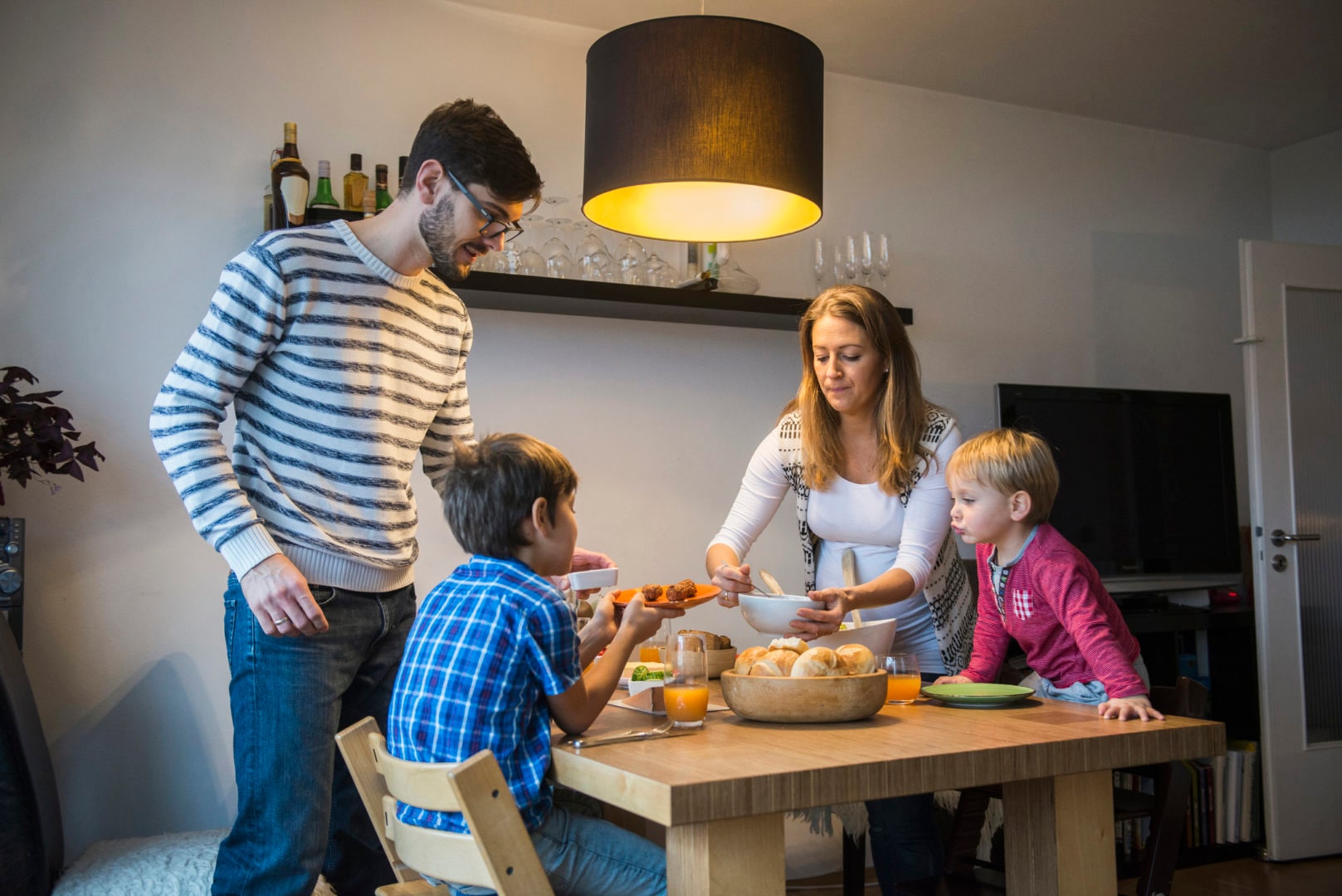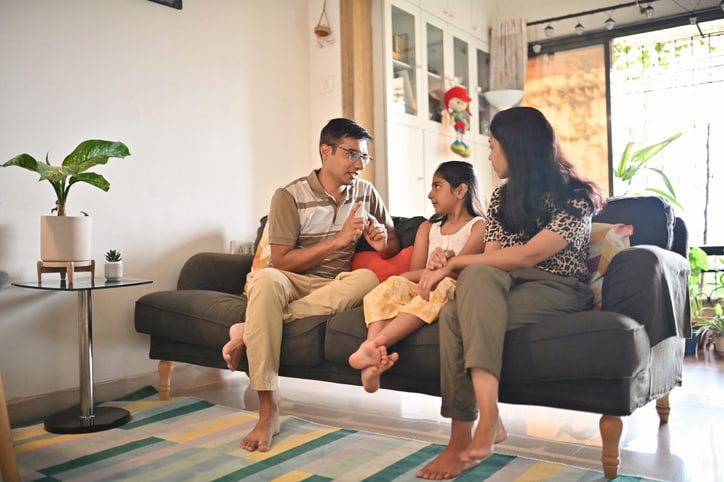It used to be that the word “family” conjured images of the stereotypical mom, dad, two kids, a dog and a house with a white picket fence. But these days, there are so many ways to be a family, and more and more people are making the choice to have children on their own terms. Enter: platonic parenting, in which people partner with a non-romantic co-parent to have and raise kids.
Platonic parenting has been steadily growing in popularity over the past decade, according to the BBC. There was even a movie about the trend called “Friends With Kids” that was released in 2012.
Platonic parenting can vary from family to family:
-
It may be longtime friends or colleagues who come together to raise a child.
-
In other instances, single people who haven’t found a partner seek out platonic co-parents to help them start a family.
-
Some members of the LGBTQ+ community have also turned to platonic parenting to create their own families.
Platonic parents even have their own family matching sites. Modamily.com, CoParents.com and FamilyByDesign.com are all sites used specifically for matching co-parents. They function like dating sites, allowing users to create profiles and answer questions about their values, parenting styles and vision for their families before scoping out potential partners.
For many people, the appeal of platonic parenting is that it allows each partner to get real about their expectations and to create a highly customized and stable environment for their child. The idea is that both parents in these situations are fully committed to being equal parents, and both parents have thought long and hard about the choice they’re making.
Lauren Brim, a 31-year-old platonic mom from Los Angeles, told the Washington Post that she and her co-parenting partner discussed “everything from spirituality to schooling and medical care” before having their daughter. CoParents.com even advises potential co-parents to seek legal counsel and draw up a detailed parental agreement prior to having children, particularly in the U.S., where laws dictating parental rights do not exist at the federal level and can vary by state.
Despite the thoughtfulness and care that goes into platonic parenting, the practice still has its critics. Many worry that children raised by platonic parents will experience stress if their parents do not live together. Others think children need to witness romantic love and have married parents in order to feel stable and gain the tools necessary to form healthy relationships later in life. And, of course, there are traditionalists out there who simply can’t get on board with anything that doesn’t fit the stereotypical family ideal.
Multiple studies have found that children fare better in two-parent, married households, but a 2010 review of the existing research found that those results are far from conclusive. The review found that the main benefits of living in a two-parent, married household are greater economic stability and secure attachments to both parents. But those benefits could be negated if children had parents who fought frequently, weren’t regularly present in their lives or were preoccupied with marriage or financial stress.
As the review notes, the assumption of many is that “children fare best in two-biological-parent married families, on average, because adults who form and maintain such families are the most stable, well-adjusted, resource-rich individuals.” However, they also note that it is difficult to test this idea because they don’t have the ability to randomly assign family structures — so, for instance, they do not always have a sample of “alternative” family arrangements to observe — and because correlation is not necessarily causation.
In other words, just because certain benefits have been associated with having married parents, that does not necessarily mean marriage is the cause of those benefits. Children fare best, the review adds, when they are in an environment that is stable, emotionally supportive and when they do not experience disruptions in family structure — and that is likely possible to achieve even when parents are not married or even romantically involved.
Currently, most of the research on co-parenting focuses primarily on the children of couples who are divorced or separated. But that will likely change as more and more families adopt different family structures that work for their lives. Platonic parenting may feel “new” to some, but it’s important to remember that there is no one-size-fits-all when it comes to having a family.
At the end of the day, parents just want to raise healthy and happy kids, and they want to be able to do that in a way that feels positive and productive for their own lives, as well. Any parent will tell you that having children is rewarding and wonderful, but it can also be stressful and come with a lot of unknowns. Platonic parenting is just one of many ways parents are trying to eliminate some of the unknowns and give their kids the best possible start.






